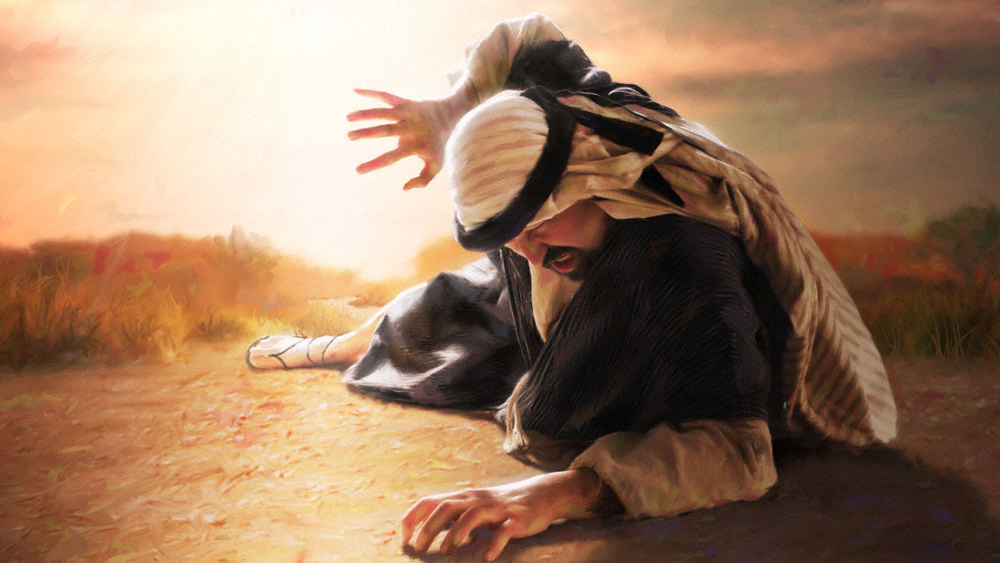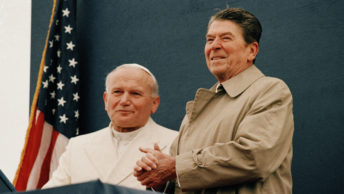“For freedom Christ set us free; so stand firm and do not submit again to the yoke of slavery.” (Gal. 5:1)
This phrase sounds rather strange. Yet, if we keep in mind that it is inspired by the Holy Spirit, we accept it and we put it into practice because our salvation depends on it. Through St. Paul, the Lord warns us that we run the constant risk of passing from one type of slavery to another with disastrous consequences.
The discourse about freedom, be it freedom of religion, of expression, of association, freedom of following one’s conscience, etc. is ongoing. So are lawsuits, demonstrations and heated discussions on conflicting rights, on rights that trump other rights, on denial of God-given rights and so on. Hence, nobody knows when, as a society, we will be able to reach a consensus that safeguards everyone’s rights according to God’s design and that includes also the duties of each.
Let this be my modest contribution on the topic of genuine freedom, the freedom for which Christ died and rose from the dead to give us so that we, believers, may not use this to freedom as an opportunity for the flesh. (Gal. 5: 13)
Lately, individualism, the haughty child of relativism, has been pushing an irrational impossibility: everyone is entitled to do as he/she thinks correct, as he/she pleases, as it is convenient to him/her independently of any set of laws including natural law.
Well, this is exactly a blatant abuse of the precious gift won for us by Christ and it provides an opportunity for the flesh. It is permissiveness, laissez-faire, abuse of freedom with total disregard for the rights of others. This is the rule of the flesh.
Those who follow the rule of the flesh (to continue with St. Paul jargon) think that they are free but, in reality, wind up being victims of very cruel and very harsh forms of slavery. The disastrous consequences of these slaveries and the devastation they cause are a source of intense grief both for those they enslave and their family and friends. This intense grief becomes unbearable for family and friends whenever the enslaved person refuses to be set free and turns down any help offered to him/her towards regaining genuine freedom.
Alas, the most common forms of slavery are well-known: alcoholism, drug abuse, gluttony, tobacco addiction, compulsive gambling, melancholic inaction, pornography and anything else on the Internet that keeps people from being who they are called to be and doing what they are supposed to do.
Yet there are also seemingly “innocent” types of enslavement: the intense rush of excessive speed, compulsive playing of videogames, and the television set always on for endless hours sublimely or overtly filling one’s mind with insipid things, creating demands and values which are neither legitimate needs nor values: and, now, one must add the ubiquitous smart phones that place people in a dehumanizing cocoon.
To these forms of slavery, we should add those that spring up undetected from the recesses of the heart wounded by original sin. First among them the instinctive urge to leave a good impression on significant others which, often, feeds on falsehoods, make-believes and duplicity.Then, acting out of fear of what people might think or say about us. This insidious tendency allows us to stay safely inside the amorphous group of our choice rather than nudge us to stand up for our convictions and Christian principles. Another one is the desire to do too much by ourselves rather than being a “team player.” If left unchecked this form of slavery generates the illusion of being indispensible, that the world would not be able to function without us. Finally, there might be the need to control and manipulate the minds, hearts and behavior of those who depend on us for whatever reason. In reality, those who suffer from this type of enslavement are convinced that only whatever they think and choose is best and most acceptable; only whatever they think and choose is correct. Consequently, willingly or under constraint, those whom they influence are forced to submit. This type of slavery is basically a form of idolatry as manipulators and mind-controllers take the place of God in the lives of those who have to submit to them.
In stark contrast, the freedom for which Jesus set us free through his death and resurrection is the removal of everything that from without and, most significantly, from within, keeps us from loving as Jesus taught us. This is the simplest and most accurate definition of Christian freedom!
Come to think of it, both those who are living in Christ’s freedom and those who are enslaved by any of the above-mentioned forms of slavery, desire the very same thing: they desire that for which they were all created in God’s image, i.e. to love and to be loved. The difference is that the enslaved ones insist on loving and being loved without living in Christ’s freedom.
- Galatians 5:14 “for the whole law is fulfilled in one statement, namely, ‘You shall love your neighbor as yourself.”’
- For a prophet such as Elisha (I Kings 19: 16-21) freedom required detachment from his farm, family and his former occupation.
We see in the Gospel of Luke (9: 51-62) how free Jesus was as he taught us what to do to love and to be loved. Jesus had severed all human ties and was determined to go to Jerusalem, fully aware of what that decision entailed. He had placed his whole life, trustingly, in the hands of the Father so he could let even a horrific cross crush him. His was the ultimate display of freedom. For Samaritans trying to keep Jesus from exercising his freedom, freedom required to let go of innate racial divides and deep-seated hatred towards the Jews.
For James and John, freedom demanded that they shed a strict interpretation of justice so that they could allow God to be the God who guides the sun to shine on all of his children and lets the rain fall on the good and bad alike. (Mt. 5: 45) For potential disciples freedom requires the humility of knowing one’s own limits that could be embarrassingly confining, or it might include acts of heroism and extraordinary courage. For us, too, such freedom requires painful detachment from all ties, and even acts of occasional heroism and courage.
We know that all of us are made in the Father’s image for loving and for being loved. We ask the Holy Spirit to help us discover those chains and fetters that keep us from loving and from being loved as the Father wants.
The next step should be a step that we ought to repeat as often as needed: whenever we feel apprehensive, restless, bitter or worried we should remind ourselves of how much we are loved by the Father, the Son and Holy Spirit.
We should feel embarrassed acknowledging that the uneasiness in our minds and hearts stems from our belief that there must be something stronger than the love, mercy and power that God has for us. We should, then, regain our freedom by surrendering our entire being into the hands of the Father. At that point, freedom will enable us to love as we should and feel as loved as we already truly are.








